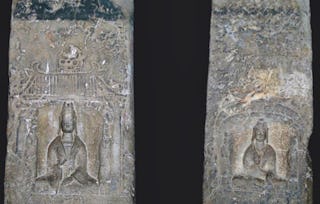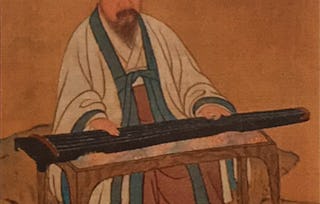This sequence of four courses will propose a multi-disciplinary approach to the study of Chinese cultural history conceived of as a succession of modes of rationality (philosophical, bureaucratic, and economic). The focus will be on the moments of paradigm shift from one mode of rationality to another. For each of these moments, cultural facts and artifacts—thought, literature, ritual—will be examined in relationship to changing social, political, and economic systems.

Intellectual Change in Early China: Warring States and Han

Intellectual Change in Early China: Warring States and Han

Instructor: Prof. John Lagerwey
7,205 already enrolled
Included with
125 reviews
Skills you'll gain
Details to know

Add to your LinkedIn profile
28 assignments
See how employees at top companies are mastering in-demand skills

There are 6 modules in this course
This module introduces the key concepts that will be used throughout the course and the basic outlines of Chinese cultural history, starting with the Warring States (481-256 BCE).
What's included
3 videos3 readings3 assignments
This module explains why the intellectual elite attacked traditional religious practices like divination and shamanism.
What's included
6 videos4 readings6 assignments
This module presents two forms of self-cultivation—Confucian and Daoist—that emerged during the Warring States.
What's included
5 videos5 assignments
We are going to learn about the meaning of “transcendence” as seen in the sacrifice to Heaven of the “Son of Heaven” (the king and later the emperor) and in the new cosmology of the Dao (Way) and Qi (vital energy).
What's included
6 videos1 reading6 assignments
This module is about local and imperial religion in the Han dynasty (206 BCE-220 BC).
What's included
3 videos2 readings3 assignments
This module states how new theories of healing based on the cosmology of Dao and Qi, in the face of the political and social crisis of the second century CE, made way for a return of ideas of demon-caused illness.
What's included
5 videos2 readings5 assignments
Instructor

Offered by
Explore more from History
 Status: Preview
Status: PreviewThe Chinese University of Hong Kong
 Status: Preview
Status: PreviewThe Chinese University of Hong Kong
 Status: Preview
Status: PreviewThe Chinese University of Hong Kong
 Status: Preview
Status: PreviewThe Hong Kong University of Science and Technology
Why people choose Coursera for their career

Felipe M.

Jennifer J.

Larry W.

Chaitanya A.
Learner reviews
- 5 stars
77.60%
- 4 stars
16%
- 3 stars
4%
- 2 stars
0.80%
- 1 star
1.60%
Showing 3 of 125
Reviewed on Sep 4, 2018
Instructor is expert in everything Chinese and quite interesting.
Reviewed on Aug 4, 2020
Thank you so much Prof Lagerwey and Coursera. All my gratitude for this brilliant journey.
Reviewed on Aug 19, 2018
Brilliant course. Strongly recommended to anyone who teaches and studies ancient China.

Open new doors with Coursera Plus
Unlimited access to 10,000+ world-class courses, hands-on projects, and job-ready certificate programs - all included in your subscription
Advance your career with an online degree
Earn a degree from world-class universities - 100% online
Join over 3,400 global companies that choose Coursera for Business
Upskill your employees to excel in the digital economy
Frequently asked questions
To access the course materials, assignments and to earn a Certificate, you will need to purchase the Certificate experience when you enroll in a course. You can try a Free Trial instead, or apply for Financial Aid. The course may offer 'Full Course, No Certificate' instead. This option lets you see all course materials, submit required assessments, and get a final grade. This also means that you will not be able to purchase a Certificate experience.
When you purchase a Certificate you get access to all course materials, including graded assignments. Upon completing the course, your electronic Certificate will be added to your Accomplishments page - from there, you can print your Certificate or add it to your LinkedIn profile.
Yes. In select learning programs, you can apply for financial aid or a scholarship if you can’t afford the enrollment fee. If fin aid or scholarship is available for your learning program selection, you’ll find a link to apply on the description page.
More questions
Financial aid available,

